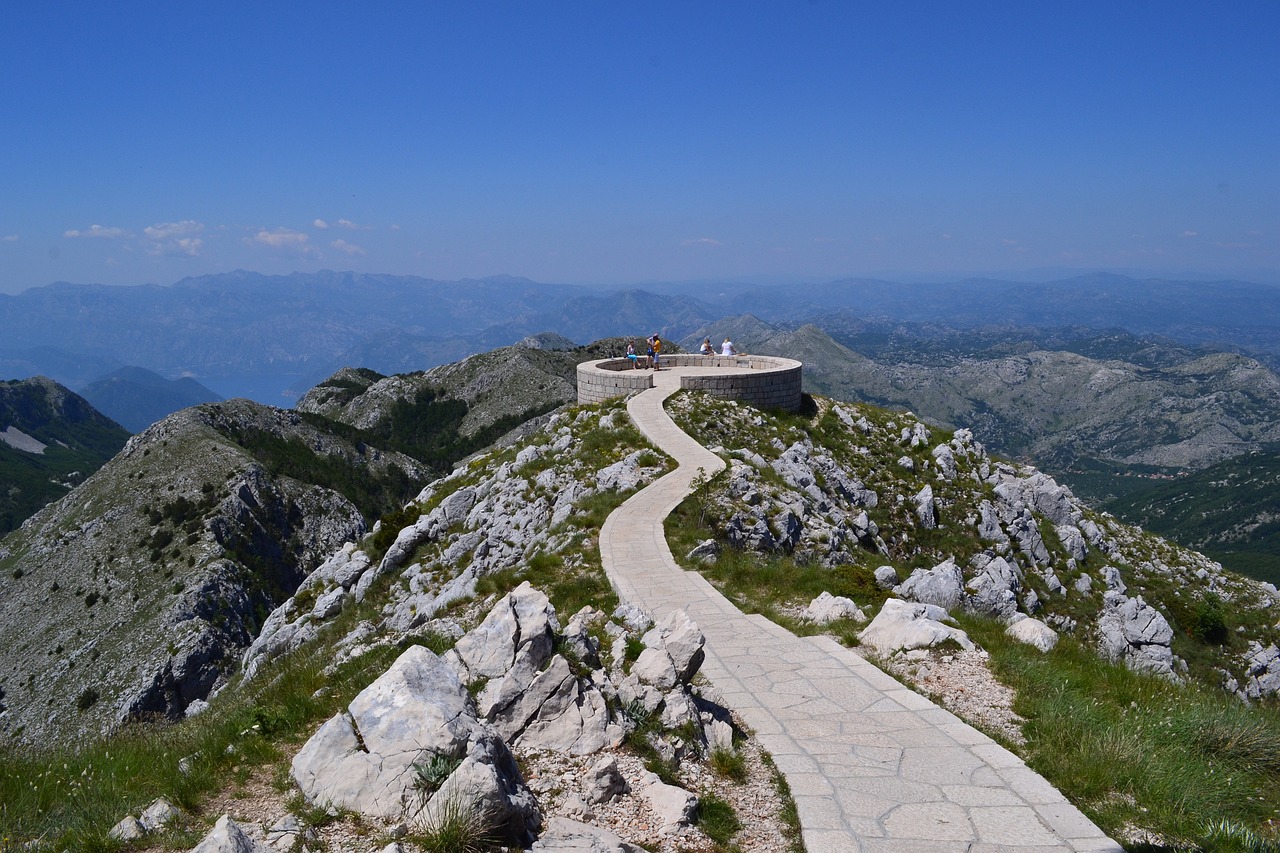Montenegro Video
Navigating Local Taxes and Business Regulations in Montenegro
Montenegro, a country located in Southeastern Europe, offers a favorable business environment for entrepreneurs and investors. However, understanding the local tax system and business regulations is crucial for successfully operating a business in Montenegro. This article provides a comprehensive guide to navigating local taxes and business regulations in Montenegro, ensuring that you have the necessary information to comply with the legal requirements and make informed decisions.
Overview of Montenegro
Before delving into the intricacies of local taxes and business regulations, let’s briefly overview Montenegro. Montenegro, meaning “Black Mountain,” is a small country with a rich cultural heritage and breathtaking natural landscapes. It gained independence in 2006 and has since been focused on economic development and attracting foreign investments.
Montenegro boasts a strategic location, nestled between the Adriatic Sea and several neighboring countries. Its membership in NATO and candidate status for European Union accession further enhances its appeal as an investment destination. With a pro-business environment, low tax rates, and a simplified registration process, Montenegro offers ample opportunities for entrepreneurs and businesses alike.
1. Taxation System in Montenegro
The tax system in Montenegro is based on both direct and indirect taxes. The main taxes applicable to businesses include corporate income tax, value-added tax (VAT), personal income tax, and social security contributions. Understanding these taxes is crucial for compliant operations and effective tax planning. Here are the key points to consider:
- Corporate Income Tax: The corporate income tax rate in Montenegro is a flat 9%. It applies to both resident and non-resident companies on their worldwide income. Certain incentives and exemptions are available for specific sectors and regions.
- Value-Added Tax (VAT): The standard VAT rate in Montenegro is 21%. Reduced rates of 7% and 0% apply to specific goods and services. Registration for VAT is mandatory for businesses with annual turnover exceeding EUR 18,000.
- Personal Income Tax: Individuals in Montenegro are subject to progressive personal income tax rates ranging from 9% to 11%. Non-residents are generally taxed on their Montenegrin-source income.
- Social Security Contributions: Both employers and employees are required to contribute to the social security system in Montenegro. The rates vary depending on the income level and are subject to periodic changes.
2. Business Registration Process
Before commencing business activities in Montenegro, it is essential to complete the business registration process. The process involves several steps, including company formation, obtaining necessary permits and licenses, and registering with relevant authorities. Here’s an overview of the business registration process in Montenegro:
- Company Formation: Choose a unique name for your company and prepare the necessary documentation, including the Articles of Association. Register the company with the Central Registry of Business Entities.
- Permits and Licenses: Depending on the nature of your business, you may need specific permits and licenses. Conduct thorough research to identify the requirements and ensure compliance.
- Registration with Tax Authorities: Register for tax purposes with the Tax Administration of Montenegro. This includes obtaining a tax identification number (TIN) and registering for VAT, if applicable.
- Employment Registration: If you plan to hire employees, register with the Employment Agency of Montenegro. This step ensures compliance with labor laws and regulations.
3. Labor Laws and Employment Regulations
Montenegro has a comprehensive legal framework governing labor relations and employment regulations. Understanding these laws is crucial for creating a harmonious work environment and complying with the legal obligations. Here are some key points to consider:
- Employment Contracts: Employment contracts must be in writing and include essential terms and conditions, such as duration, working hours, remuneration, and termination provisions.
- Minimum Wage: Montenegro has a minimum wage, which is subject to periodic adjustments. Ensure that your employees receive at least the minimum wage as set by the government.
- Working Hours: The standard working hours in Montenegro are 40 hours per week. Overtime work is subject to specific regulations, including the payment of additional compensation.
- Annual Leave and Holidays: Employees are entitled to annual leave and public holidays as per the labor laws. Familiarize yourself with these entitlements and ensure compliance.
4. Intellectual Property Rights
Protecting intellectual property rights is essential for businesses operating in Montenegro. The country has a legal framework in place to safeguard intellectual property, including trademarks, patents, copyrights, and industrial designs. Here are some key points to consider:
- Trademark Registration: Register your trademarks with the Intellectual Property Office of Montenegro to obtain legal protection and exclusive rights to use the mark.
- Patent Protection: If your business involves inventions or innovative processes, consider seeking patent protection to prevent unauthorized use or reproduction.
- Copyrights: Copyright protection extends to literary, artistic, and scientific works. Ensure that your original creations are properly copyrighted to prevent infringement.
- Industrial Designs: If your business involves the visual appearance of a product, consider registering the industrial design to protect its uniqueness and prevent imitation.
Montenegro Image 1:

5. Environmental Regulations
Montenegro places significant importance on environmental protection and sustainable development. Businesses operating in the country must comply with environmental regulations to minimize their impact on the environment. Here are some key points to consider:
- Environmental Permits: Certain industries and activities require environmental permits. Ensure that you obtain the necessary permits and comply with environmental standards.
- Waste Management: Proper waste management practices are essential to protect the environment. Familiarize yourself with the waste management regulations and implement appropriate measures.
- Renewable Energy: Montenegro promotes the use of renewable energy sources. Consider incorporating renewable energy solutions into your business operations to support sustainability goals.
- Environmental Impact Assessments: Large-scale projects may require an environmental impact assessment. Consult with the relevant authorities to determine if your project requires an assessment.
6. Consumer Protection Laws
Montenegro has consumer protection laws in place to ensure fair and transparent business practices. Complying with these laws is essential for maintaining consumer trust and avoiding legal issues. Here are some key points to consider:
- Product Safety: Ensure that your products meet the required safety standards and do not pose any risks to consumers. Conduct regular quality control checks to maintain product safety.
- Advertising and Marketing: Advertisements must be truthful, accurate, and not misleading. Avoid deceptive practices and ensure that your marketing materials comply with the relevant laws.
- Warranty and Returns: Familiarize yourself with the warranty and return policies specified in the consumer protection laws. Provide clear information to consumers regarding their rights and options for returns or refunds.
- Unfair Contract Terms: Avoid unfair contract terms that may disadvantage consumers. Ensure that your contracts are fair, transparent, and in compliance with the consumer protection laws.
Montenegro Image 2:

7. Real Estate Regulations
If your business involves real estate in Montenegro, it is essential to understand the relevant regulations and procedures. Whether you are buying, selling, or leasing property, compliance with real estate laws is crucial. Here are some key points to consider:
- Property Ownership: Foreign individuals and entities can freely own property in Montenegro, subject to certain restrictions for agricultural land. Familiarize yourself with the ownership regulations specific to your situation.
- Real Estate Transactions: Real estate transactions must be conducted through a notary public. Ensure that all necessary documentation is in order and comply with the requirements for property transfers.
- Rental Agreements: If you plan to lease property, ensure that rental agreements comply with the relevant laws and protect the rights of both landlords and tenants.
- Construction Permits: Construction projects require permits from the relevant authorities. Obtain the necessary permits and comply with construction regulations to avoid legal issues.
8. Financial Reporting and Audit Requirements
Businesses in Montenegro must comply with financial reporting and audit requirements to ensure transparency and accountability. Here are some key points to consider:
- Financial Statements: Prepare annual financial statements in accordance with the Montenegrin Accounting Standards. Submit the financial statements to the Tax Administration and other relevant authorities as required.
- Audit Requirements: Certain businesses are required to undergo an annual audit by an independent auditor. Familiarize yourself with the audit requirements applicable to your business.
- Accounting Records: Maintain accurate and up-to-date accounting records in compliance with the Montenegrin Accounting Standards. These records should reflect the financial position and performance of your business.
- Tax Reporting: Comply with tax reporting obligations, including the timely submission of tax returns and payment of taxes due. Keep track of tax deadlines and ensure accurate reporting.
9. Immigration and Work Permits
If you plan to employ foreign workers in Montenegro, it is important to understand the immigration and work permit requirements. Ensure that your employees have the necessary permits to legally work in the country. Here are some key points to consider:
- Work Permits: Foreign individuals must obtain work permits to legally work in Montenegro. The process involves submitting an application to the Employment Agency and meeting specific criteria.
- Residence Permits: Foreign individuals planning to reside in Montenegro for an extended period may need to obtain a residence permit. Consult with the relevant authorities to determine the requirements.
- Employer Obligations: Employers hiring foreign workers must comply with the applicable labor laws and regulations. Ensure that your employment contracts and practices are in line with the legal requirements.
- Visa Requirements: Depending on the nationality of your employees, they may need to obtain a visa to enter Montenegro. Familiarize yourself with the visa requirements and assist your employees in the application process.
Montenegro Image 3:

Conclusion
Operating a business in Montenegro requires a thorough understanding of the local tax system and business regulations. By familiarizing yourself with the taxation framework, business registration process, labor laws, intellectual property rights, environmental regulations, consumer protection laws, real estate regulations, financial reporting requirements, and immigration obligations, you can ensure compliant operations and make informed business decisions.
Remember to consult with legal and tax professionals to ensure accuracy and compliance with the latest regulations. By navigating the local taxes and business regulations effectively, you can seize the opportunities offered by Montenegro and contribute to the country’s economic growth.
References
– Ministry of Finance of Montenegro: www.mf.gov.me
– Central Registry of Business Entities: www.crps.me
– Employment Agency of Montenegro: www.zzzcg.org
– Intellectual Property Office of Montenegro: www.zis.gov.me
– Montenegrin Accounting Standards: www.mrev.gov.me
– Tax Administration of Montenegro: www.tax.gov.me


